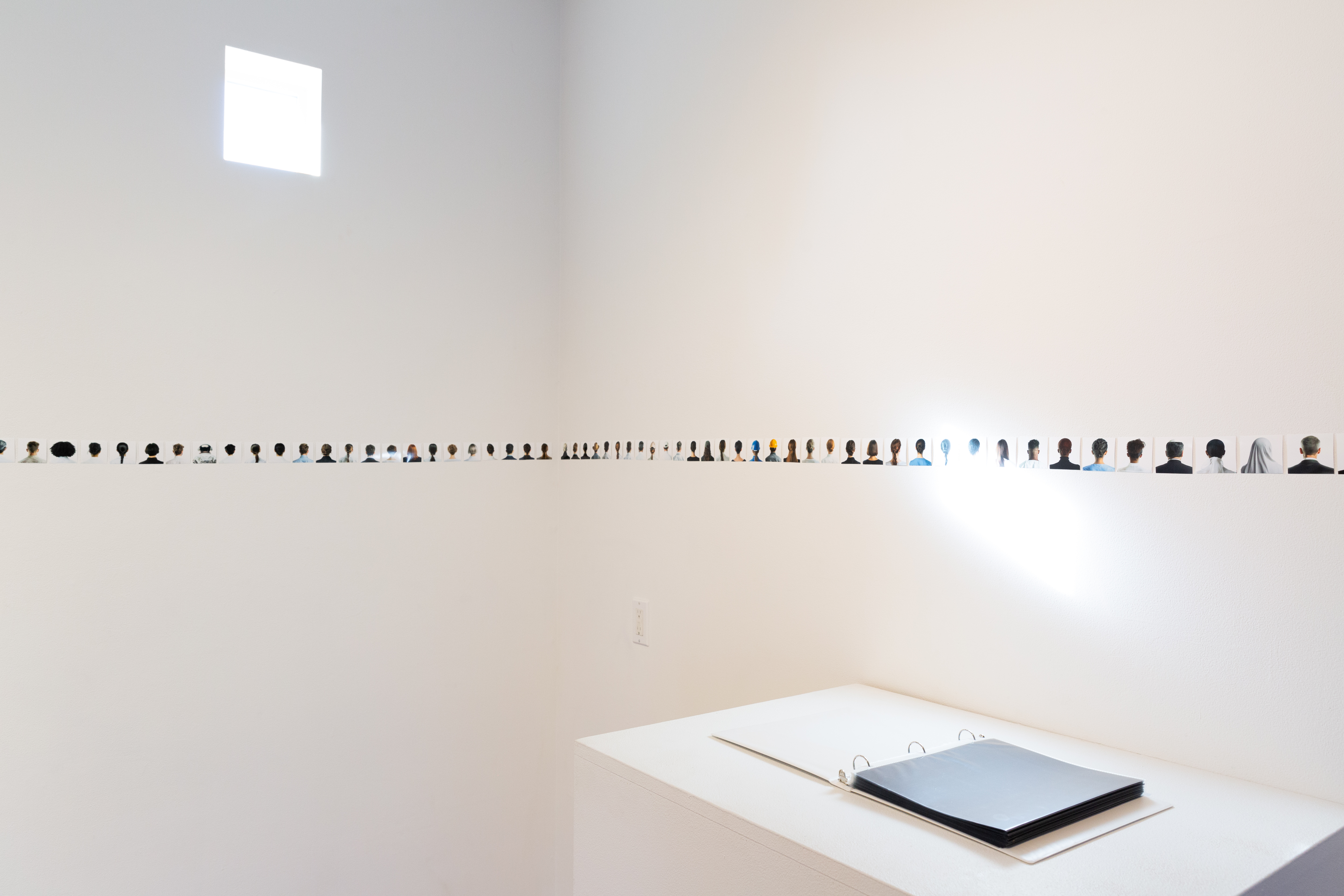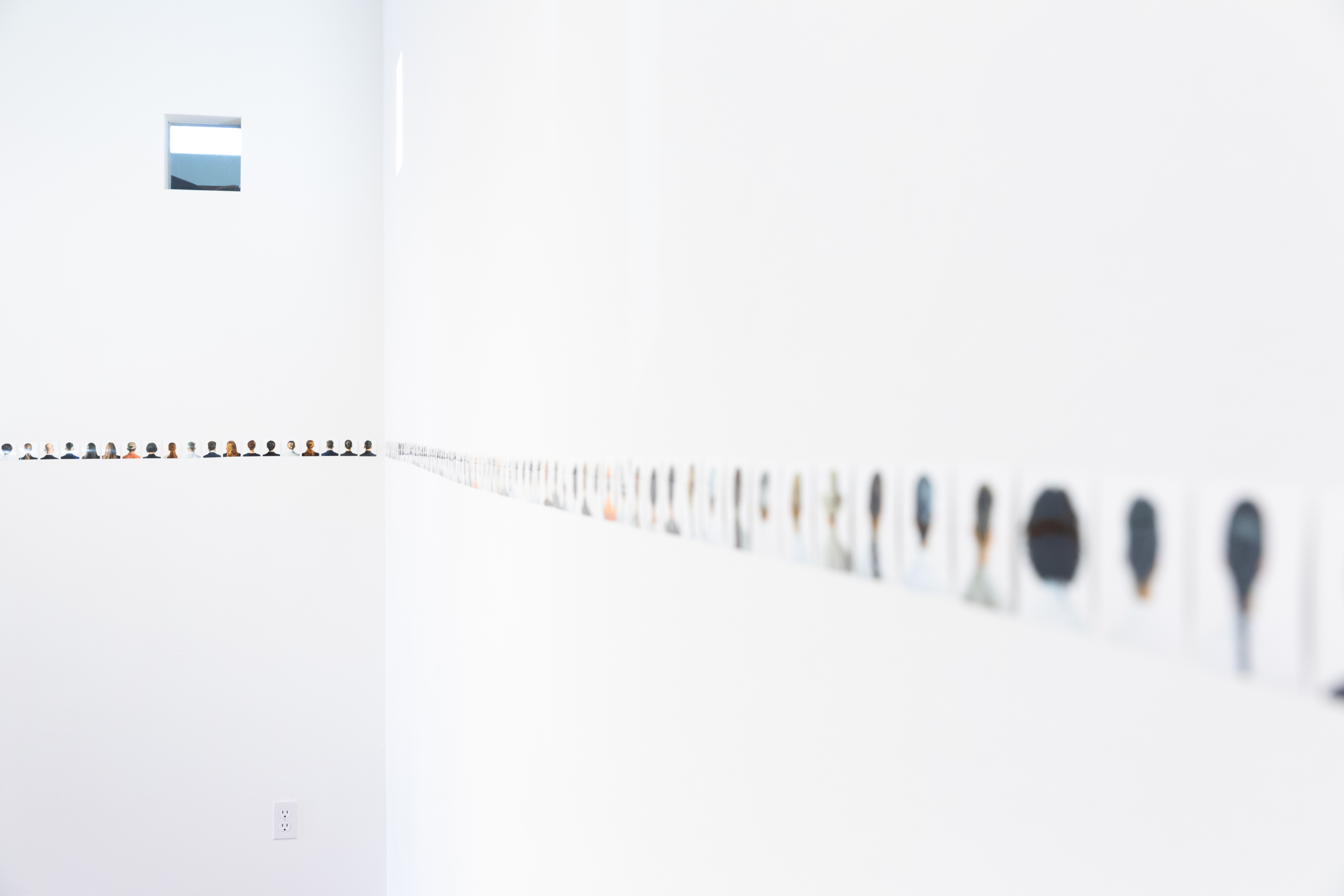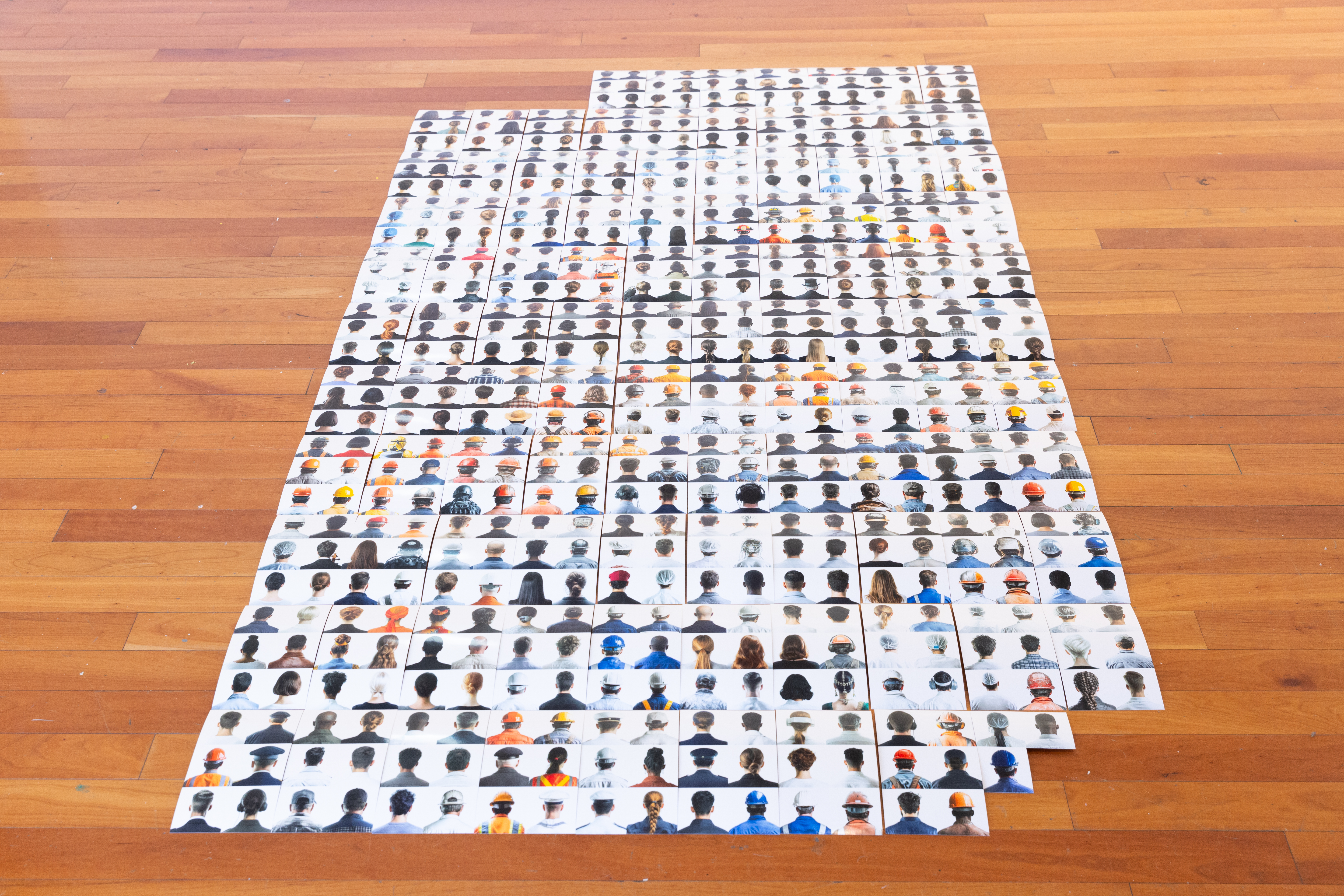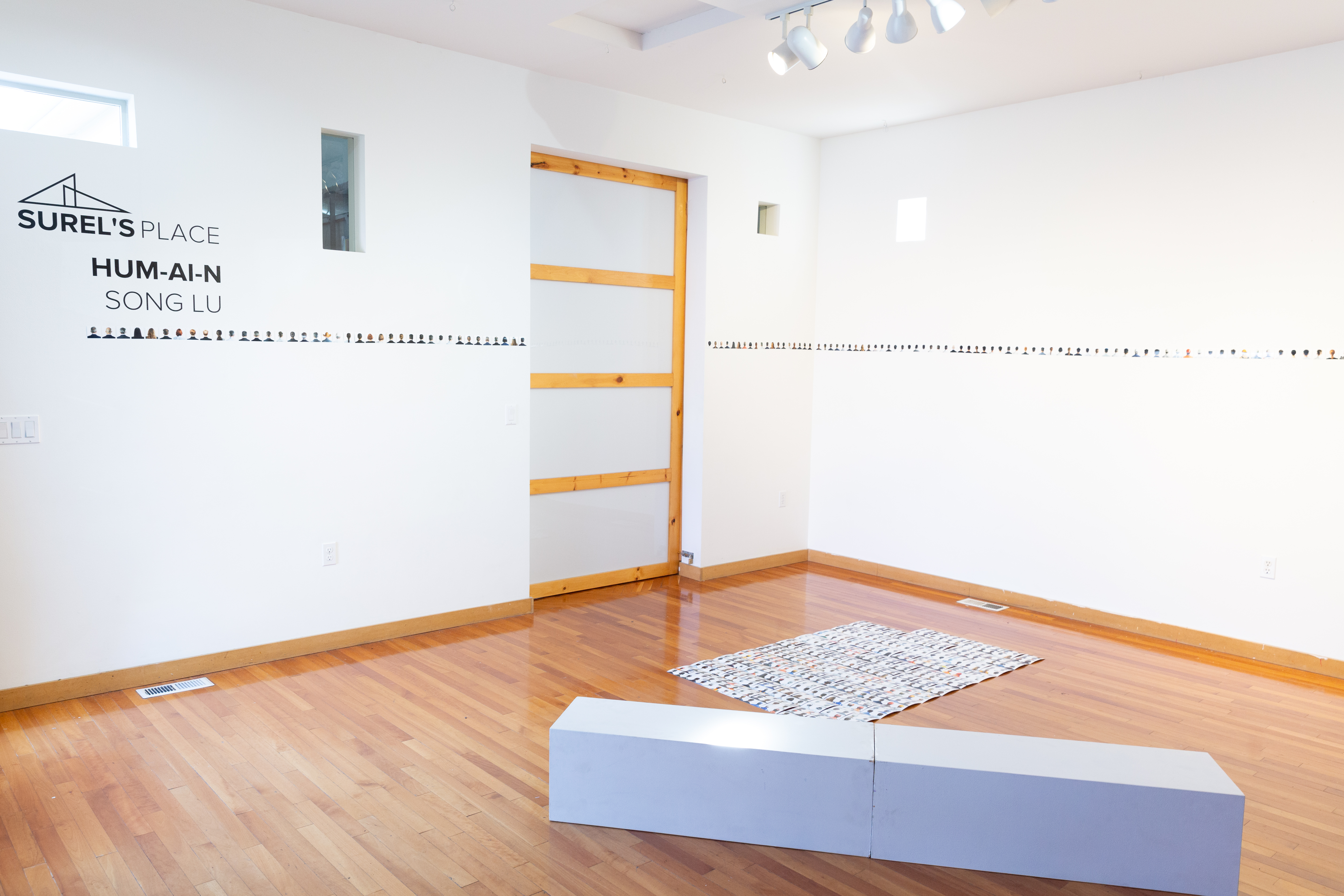Hum-AI-n
Project Type: AI-generated Images
Completion Year: 2024-2025Hum-AI-n confronts the threshold where artificial intelligence reconstructs reality and identity, questioning how humans perceive the world through curated memory data while exposing the collective blind spots embedded in cognitive models. The exhibition uses the failure of dual archives as a metaphor: 831 AI-generated 2x2-inch passport photos, depicting anonymous human backs, face off against a U.S. occupational wage report engulfed in black. Together, they form an equation of technological rationality and human experience—visible yet unreadable, real yet unsolvable.








